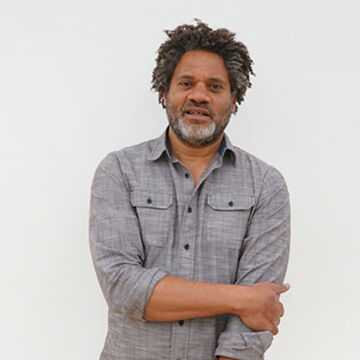

Robert Burnier
Assistant Professor
Contact
Bio
Education: MFA, The School of the Art Institute of Chicago, Painting and Drawing (2016). BS, Computer Science, Shippensburg University of Pennsylvania (1991). Exhibitions: O One, O None, Through the Night at Blank Projects, Cape Town, South Africa, O No One, O You, Around a Mortar of Fire at Andrew Rafacz Gallery, Chicago, Rob Barnard, Robert Burnier & Julian Stair, at Corvi-Mora gallery, London, Song Cycle at David B. Smith gallery Denver, CO, Temple at Andrew Rafacz Gallery, Chicago, Black Tibernius at the Chicago Riverwalk, Of No Particular King, at Arts Club of Chicago, Primary, at Korn Gallery, Drew University, New Jersey, Lip To My Ear, at Vacation Gallery, New York, Objectified, at Trestle Gallery, Brooklyn, So That Justice Should be Tyrant, at Andrew Rafacz Gallery, Ghost Nature at Gallery 400, Chicago, IL and La Box, Bourges, France, The Chicago Effect: Redefining the Middle at the Hyde Park Art Center, Chicago, IL, Imaginary Landscapes, curated by Allison Glenn, at Chicago Urban Art Society and Jenny From the Color Block, at the Cincinnati Art Academy. Exhibitions: a solo show at Corvi-Mora, London, and international fairs NADA Miami and Art Toronto.
His work has also been exhibited at art fairs in London, Cape Town, Miami, New York, Chicago, Dallas and Copenhagen. He has served on the boards of several arts organizations, including Heaven Gallery, Intuit: The Center for Intuitive and Outsider Art, and Tiger Strikes Asteroid, Chicago.
The folded and compressed forms retain a history of their own becoming – the colors of ancient African, Mediterranean and Mesopotamian objects yield inspiration. But the work has its demands, as do I, a communion of what is within and without, to understand this sovereignty, this being. For the past might be as different from now as we expect of the future, and we are the arch on the shifting ground between. L. L. Zamenhof’s utopian language of Esperanto, a bridge from existing linguistic traditions, resonates through the titles of the work. A universality without erasure, a reconstruction without a blank slate